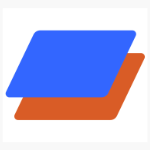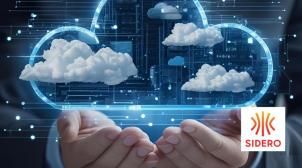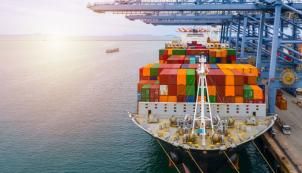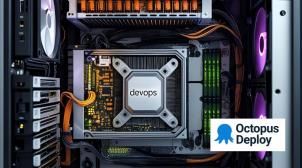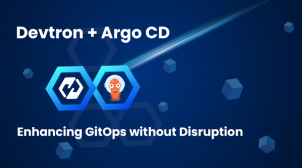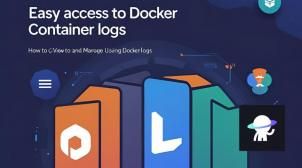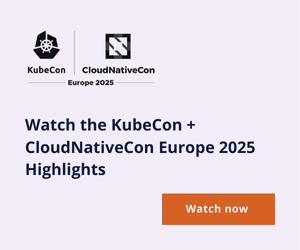-
Cloud Optimization Won’t Save Your Budget
Cloud cost savings aren’t living up to the hype—and it's time to rethink the economics of cloud ownership. This article explores how enterprises are overspending due to cloud provider lock-in, dynamic pricing, and operational overhead, and why on-prem or hybrid infrastructure may offer better long-term value. Drawing from real-world experiences like Disney+ and startups like Zig, it urges FinOps leaders and engineers to assess when cloud is an asset—and when it's a liability.
-
Cloud Security in the Age of AI: Insights from Dot Security's CTO
Explore the future of cloud security and AI with Jeff Leder, CTO of Dot Security. Discover key cybersecurity challenges, the shift-left approach, and how AI is reshaping the threat landscape.
-
CloudBolt x StormForge: Why Automated FinOps Beats Human Effort
CloudBolt CTO Kyle Campos discusses ending FinOps dashboard overload with action-driven orchestration and how StormForge enhances Kubernetes optimization through real-time automation and smarter remediation.
-
Cloudbunker Consulting Relies on Bitwarden for Scalable Password Security
Since 2016, Lou Hill—a security engineer and founder of Cloudbunker—has trusted Bitwarden for secure password management. What began as a personal solution quickly scaled to power his IT consulting firm and its clients. From internal operations to managed service offerings, Bitwarden helps Cloudbunker enforce strong security, streamline access, and eliminate poor password practices. Now preparing to onboard 200 more users, Hill credits Bitwarden as a future-proof solution for secure, scalable growth.
-
Combine Portainer & GitLab to solve tech and business challenges around containers
Explore the dynamic synergy between Portainer and GitLab, two powerhouse platforms revolutionizing container orchestration. Discover how their seamless collaboration streamlines workflows, enhances collaboration, and empowers businesses for agile, innovative success.
-
Delivering Better Software, Faster: HashiCorp’s Vision at KubeCon
Kerim Satirli of HashiCorp shares insights on infrastructure, security, and developer tooling—plus what’s new with Vault and HashiCorp’s cloud-native vision at KubeCon.
-
Deutsche Telekom drives DevSecOps transformation with GitLab Ultimate
With GitLab, Deutsche Telekom has created a single source of truth for the company's developers, driving increased productivity, enhanced security, and faster time to market.
-
DevOps and Platform Engineering
DevOps brought developers and operations together to improve software delivery speed and reliability. Now, Platform Engineering builds on that foundation—enabling development teams with self-service tools, golden pathways, and smoother workflows. This article explores how Platform Engineering complements DevOps, supports scale without sacrificing autonomy, and helps high-performing teams reduce complexity while boosting productivity.
-
DevOps tool sprawl: is ‘tool tax’ just the tip of the iceberg
DevOps tools streamline automation, but tool overload causes chaos. Discover why tool simplicity, seamless integration, and usability matter—and how tool sprawl is becoming a major DevOps challenge.
-
Devtron + Argo CD: Enhancing GitOps Without Disruption
AI-assisted development is no longer a futuristic concept; it's the present reality. With AI accelerating the development velocity, can your legacy and fragmented tooling help you sustain the frequent code deployments?
-
Diskless Kafka is the Tide, and it’s Rising
Discover KIP-1150 Diskless Topics now live in Aiven Kafka BYOC, enabling Apache Kafka on AWS, Google Cloud, and Azure to write directly to object storage. Learn how this innovation slashes costs by up to 80%, eliminates operational toil, and maintains 100% Apache Kafka compatibility, ensuring zero vendor lock-in and a single logical cluster for all streaming workloads.
-
Docker Container Logs: How to View & Manage
Easy access to Docker container logs is essential for effective development and debugging. This guide explores how to view and manage Docker logs using the docker logs command, Docker Compose, and Docker Desktop. It also covers where logs are stored, how to clear them, and best practices for centralized logging, log rotation, and structured output. Whether you're just starting with Docker or optimizing a production setup, this article will help you tailor container observability to your needs.
Filter & Sort



